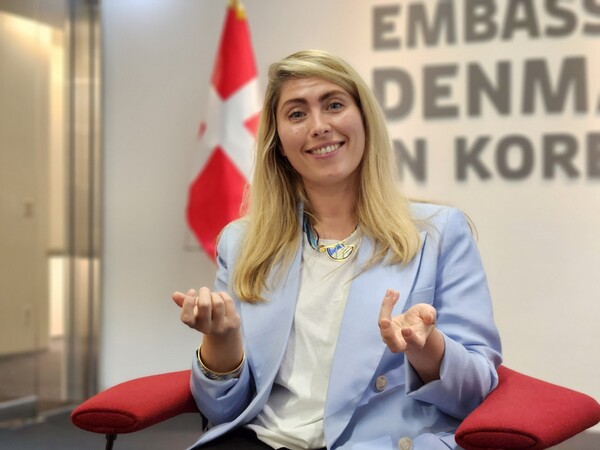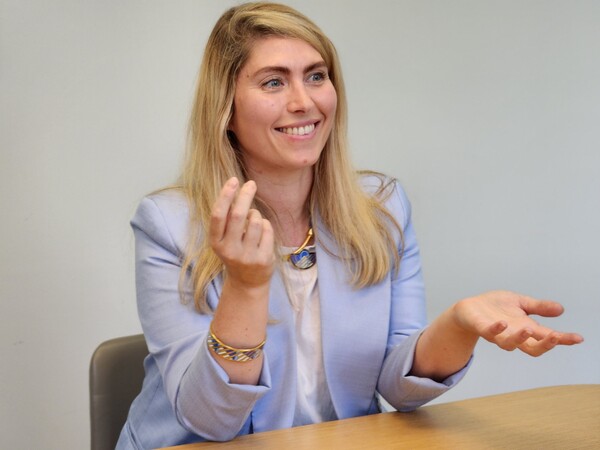Recently, the Danish Embassy in Korea announced the launch of the Korea-Denmark Hospital Alliance to strengthen healthcare exchanges between leading hospitals in Korea and Denmark.
As Denmark seeks to develop its bioindustry, the government has positioned health counselors in eight different countries across the globe with which they wish to closely collaborate and one of those countries is South Korea.

“The Danish embassy is one of the few in Korea that has a diplomat posted within healthcare,” said the Danish Embassy’s Health Counselor Randi Munk. “We share many of the same challenges within healthcare including an aging society, rising healthcare costs, chronic diseases, and also very low birth rates.”
Munk was recently stationed at the Danish Embassy in Korea to bridge relationships between the Danish and Korean governments to facilitate concrete collaborations within healthcare. Prior to her current role, Munk served as a lawyer at the Danish Medicines Agency and regulatory healthcare sector for more than 13 years.
The Korea-Denmark Hospital Alliance
“Korea invests a lot of money in upgrading hospitals annually and similarly in Denmark, we started upgrading hospitals to reflect the demographic changes in society related to aging and chronic diseases,” Munk said.
The Korea-Denmark Hospital Alliance, launched at the end of March, was inspired by the Korean Smart Hospital project and the Danish Super Hospital project.
Although the specific contributions of each hospital in the alliance are not yet formalized, Munk revealed that most Korean hospitals expressed interest in digital automation projects for improved monitoring and robotics to relieve the staff of manual labor.
Officials of Korean hospitals forming the alliance -- including Gangnam Severance Hospital, Korea University Anam Hospital, NHIS Ilsan Hospital, Seoul National University Bundang Hospital, and Hallym University Sacred Heart Hospital -- will visit Danish hospitals in May to formalize project plans.
“The hospital alliance aims to share innovative solutions between the Danish and Korean hospitals but we also want to expand and involve private companies through public-private partnerships, whereby hospitals serve as the public partner that specifically knows the patient and staff’s needs and a private partner to facilitate the technical side,” she elaborated.
In particular, she highlighted Dr. Answer which is a suite of AI-powered precision diagnostic software that assists diagnosis of 8 major diseases at the Seoul National University Bundang Hospital. Likewise, on the Danish side, she also noted that the Aarhus University Hospital in Denmark is using digital twin technology to improve hospital workflows to optimize staffing, bed allocation, and more.
Synergizing Korea and Denmark’s healthcare goals
“We're very strong within life science and more than 20 percent of our exports to Korea are based on our life science products,” she said.
However, Denmark is a small country, and thus needs to collaborate with other countries, she added.

She pinpointed intentions to prioritize international collaborations for increasing digital solutions to make use of health data as well as increasing R&D incentives to develop academia and increase the skilled workforce.
Already, there are existing partnerships like the memorandum of understanding (MOU) with the Health Insurance Review and Assessment Services (HIRA) to facilitate knowledge sharing with the Danish Medicines Agency.
“They're exchanging knowledge on improving regulatory barriers, reimbursement pricing, and also within the framework of making incentives for more innovative medicines to improve market access,” she remarked.
Munk also shared that the Danish Minister of Health visited Korea last year to establish an MOU with the National Health Insurance Service (NHIS) to use health data to investigate healthy aging related to dementia.
Noting Korea’s strengths for scale-up, she added that another focus is to develop the biotech sector in a similar way to Korea.
“As President Yoon Suk Yeol envisioned making Korea into the next Boston biotech hub, we also want to explore biotech ideas in Denmark, but need funding, joint research collaborations, and co-creations,” stated Munk.
Road toward vaccine self-sufficiency
She noted that there was a “strong collaboration” on vaccines between Denmark and Korea.
She referenced two partnerships between the Serum Institute of Denmark and the National Institute for Infectious Diseases (NIID), a research division of the KDCA, and another between the International Center for antimicrobial resistance solutions (ICARS) which is headquartered in Denmark and the International Vaccine Institute (IVI) in Korea.
Together, they're working on both vaccines but also the AMR situation in the low- and middle-income countries, she said but added that she wanted to see more collaborations for start-ups in this vaccine space.
On the flipside, Novo Nordisk, one of Denmark’s largest pharmaceutical companies is also building the Norvo Nordisk Foundation Institute for Vaccines and Immunity (NIVI) which is scheduled to be completed by 2040.
“Norvo Nordisk is a very huge partner for Danish healthcare, including both start-ups and academia,” she commented, “I think this is going to be very interesting and we also have many skilled professionals within immunology which can help facilitate future collaborations.”
She pointed out that while many countries are striving for vaccine self-sufficiency, it is unlikely to happen immediately. She cautioned against nations isolating themselves and instead encouraged collaboration to prevent missing out on opportunities for knowledge sharing.
Related articles
- Australian bio-industry delegates eagerly welcome Korean partnerships
- Hospitals in Korea, Denmark to collaborate for advanced healthcare
- [Vaccine Innovation] How are vaccines saving us from the silent AMR pandemic?
- Australia, Canada, Germany to return with larger delegates for BIO Korea 2024
- Danish Embassy launches Denmark-Korea biotech partnership project

